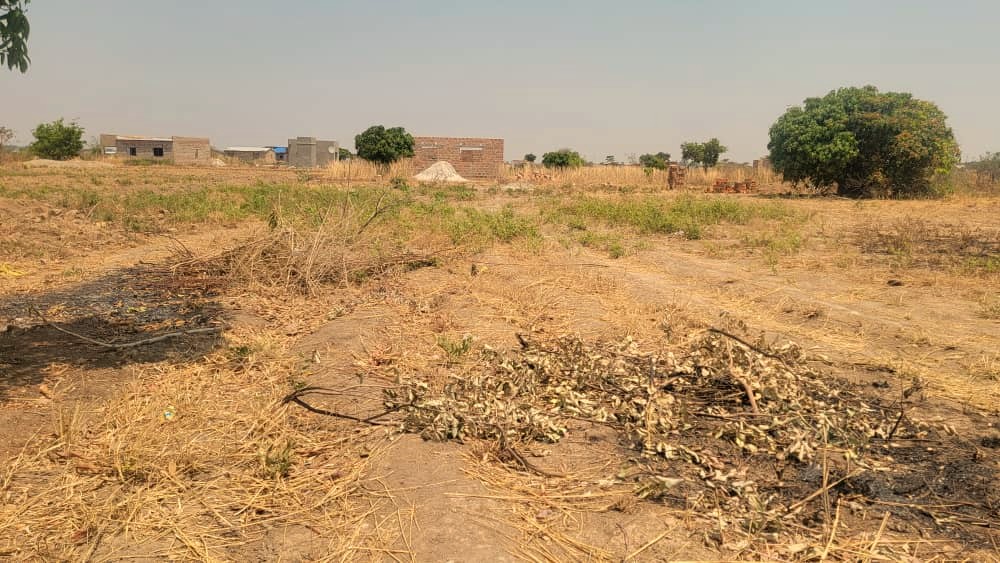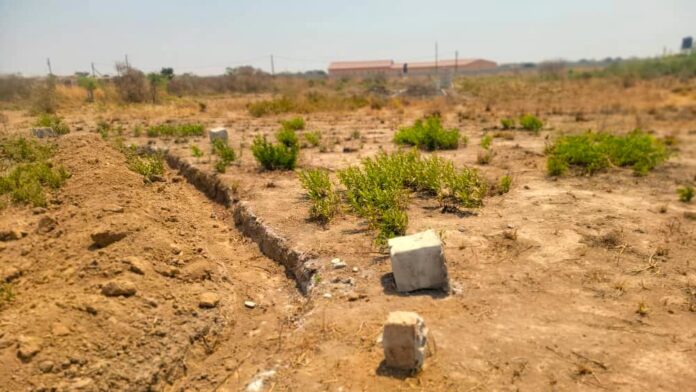By Ennety Munshya
In 2014, the Kabwe Municipal Council advertised plots of land in the Hills Park area to meet the growing demand for residential settlements in the former mining town. Hundreds of residents applied, hoping to secure land for development. Successful applicants were notified and proceeded to make the necessary payments to the council.
However, despite completing all required steps, many applicants have since faced significant challenges in accessing their land.
The situation in Hills Park area exemplifies the deep-rooted issues plaguing land administration in Zambia. Mismanagement, lack of transparency, and corruption in land allocation by local councils have contributed to a surge in land disputes.
Complainants
Lian Christian Community School applied for a one-acre plot (the size of eight football pitches) of land in Hills Park in 2014. The school’s director, Florence Mukhuma, told MakanDay that she officially applied for the land after the council advertised plots in the area.
In 2016, she was offered the plot, and in 2023, she finally acquired a title deed from the Ministry of Lands. Officials from the ministry went on site, and showed her the boundaries of the plot.

However, when she attempted to begin construction, she faced an unexpected challenge – the one-acre plot had been subdivided into smaller parcels of 40×50 meters, which were allocated to several long-time occupants.
“Since then, many people have come forward, claiming ownership of the same land,” Mukhuma said.
Approximately ten other residents, all long-time settlers, have emerged, claiming portions of the same piece of land.
MakanDay reviewed official documents from Lian Christian Community School, as well as from other parties involved in the dispute.
One of the documents, dated 17th March 2015, reveals that during a meeting held on 23rd February 2015, the Kabwe Municipal Council, under minute number PWDRE/322/02/15, recommended the approval of Lian School’s application for a plot.
Another reviewed document, a demand notice dated 16th January 2019, addressed to Priscilla Hanaumba and signed by the then Town Clerk, Ronald Daka, confirms that during a meeting held on 31st July 2018, the council recommended the approval of her application for a plot under minute number PISCW/323/07/18.
Further, it was established that some of the residents claiming ownership are descendants of farmers who worked the land long before the council’s 2014 land advertisement.
These occupants, or their descendants, argue that they have a historical right to the land, having farmed it for many years. They believe the council should have prioritised them when allocating the land, rather than offering it to new applicants.
Thomas Maingaila told MakanDay that his parents had been farming on the disputed land since 1981. He said the council never consulted the occupants before advertising the plots in Hills Park.
Mr. Maingaila recalls that it was only after they approached the council that the occupants were asked to formalise their stay by paying for the plots and obtaining the necessary documentation.
“We wrote to the local authority (council) about the ongoing issues, but we have not received any response,” Maingaila said.
Another settler, Isaac Kauseni, expressed disappointment with how the council has handled the Hills Park matter, accusing them of sidelining long-time occupants. He noted that the settlers were largely abandoned in the plot allocation process.
Priscilla Hanaumba, another affected resident, bought her 40×50 metres plot from one of the long-time settlers and formalised her ownership with the council. She expressed frustration at the confusion caused by the local authority, which has disrupted her plans to develop the land.
“My plan was to start building as soon as possible, but now I can’t do anything because of this situation,” Hanaumba lamented.
Valentines Moto is another of the many frustrated applicants who applied for a plot in the Hills Park area following the council’s 2014 land advertisement. Though he was among the successful applicants and made all the required payments, nine years later, he has yet to be shown his plot.
Mr. Moto said years of trying to engage the council to resolve the issue have yielded no results. He now feels hopeless and doesn’t know where to turn, as the council has not provided satisfactory answers.
“We don’t even know which office to approach anymore,” he said. “The council’s responses are never satisfactory,” Mr. Moto said.
Taonga Chanda Mwambazi is facing a similar dilemma. Despite having all the necessary documents for her plot, she too has not been shown her land. When she approached the council, she was told that the occupants in the area are hostile, which is why the council has been unable to show the applicants their plots.
Mrs. Mwambazi is appealing to the relevant authorities to intervene, urging that successful applicants either be shown their plots or offered alternative land.
“At one point, the council mentioned the possibility of refunds, but consider how much time has passed since we acquired these plots, Mrs. Mwambazi said. “The value of the money we paid has depreciated significantly—I don’t think we could do much with it now.”
In Zambia, local council’s serve as agents of the Ministry of Lands in land management.
They play a key role in administering land within their jurisdictions.
When it comes to land management, councils operate within the broader regulatory framework set by the ministry which holds the ultimate authority over land allocation, titling and policy.
Despite being entrusted with this important role, most councils have struggled with land management, as can be evidenced from the number of land disputes such as the case of Kabwe.
The council has faced other challenges in the past. In 2017 the council was suspended by the Ministry of lands for failure to adhere to the guidelines and procedures in the administration of land.
The then Minister of Lands Jean Kapata charged that the local authority had disregarded the guidelines and laid down procedures in the administration of land.
Kabwe municipal council’s response
On 15th October, 2024, MakanDay sent a request for comment on the issues happening in Hills Park, to the Kabwe Municipal Council.
In Response council director of planning, Mwila Chansa, told MakanDay that at the time the council was planning Hills Park area, the land was bare and there were no settlers on the ground except for some individuals who were involved in subsistence farming.
The council acknowledged historical issues and is working to resolve them by integrating occupants into the official plan or offering them alternative plots in Mpima and within the Hills Park area.
Regarding plots on titled land, the council indicated that it has limited authority over this matter and that all settlers occupying land with title deeds have been issued notices to vacate.
Stakeholders speak out
Eugene Kabilika, the Paralegal Alliance Network chairperson observed that the land disputes in Zambia are mostly exacerbated by failure to respect laws that govern land administration. He said the nationwide land audit which has dragged is what is needed in sorting out land management issues in Zambia because it will indicate how much traditional land and state.

Discover more from MAKANDAY
Subscribe to get the latest posts sent to your email.



